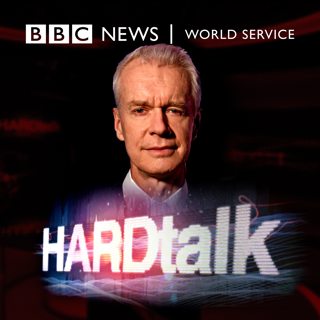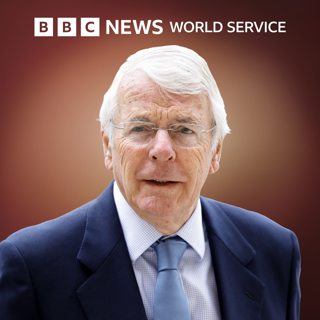
Carlos Ghosn - CEO of Renault-Nissan
Renault has been long regarded as a jewel in the crown of French industry. But Renault has lost much of its lustre. Despite joining forces with the Japanese giant Nissan, Renault has seen sales and profits slump which is making the French government nervous. Carlos Ghosn is the CEO of Renault and Nissan. He turned Nissan’s fortunes around but can he do the same for Renault?(Image: Carlos Ghosn, Credit: Getty Images)
7 Dec 201223min

Mike Newell - film director
Mike Newell is responsible for box office hits like Four Weddings and a Funeral, Donnie Brasco and Harry Potter and the Goblet of Fire. He could make almost any film he wants. So why choose his latest movie - a remake of the classic Dickens novel Great Expectations. What more is there to add when there have already been so many adaptions?(Image: Mike Newell, Credit: Getty Images)
6 Dec 201223min

Peter Voser - CEO of Royal Dutch Shell
The United States is about to become the world's largest producer of oil and gas. Quite remarkable for a country that only a few years ago was the world's largest importer of gas. It's a turnaround made possible by shale and it comes at a time of rapidly increasing demand from China, India and the Middle East. Peter Voser is the boss of Royal Dutch Shell one of the biggest energy companies in the world. With economies so thirsty for power, producers are being driven to new frontiers - but at what cost?(Image: Peter Voser, Credit: Getty Images)
3 Dec 201223min

Jeh Johnson- General Counsel, US Department of Defense
How far will Barack Obama go in taking on critics who say the United States has abandoned its role as the global champion of human rights? America's counter-terrorism measures after 9/11 - including targeted killings and indefinite periods of detention without trial - have angered many. Former President Jimmy Carter has said the US has now lost its moral authority as a result. Zeinab Badawi speaks to Jeh Johnson, the General Counsel of the US Defense Department, the Pentagon's top lawyer and a close ally of Barack Obama.(Image: Jeh Johnson. Credit: Brendan Smialowski/Getty Images)
30 Nov 201223min

Michael Woodford - Former CEO, Olympus
Zeinab Badawi speaks to the British businessman Michael Woodford, who rose to become chief-executive of one of the most iconic Japanese companies - the camera and medical equipment maker, Olympus. He then exposed fraud at the heart of its leadership and was sacked after 30 years of service. Three bosses of the Tokyo-based company subsequently admitted he was right and it emerged they had hidden $1.7 billion in investment losses, dating back to the 1990s. What does his case tell us about business culture, corporate scandals and whistle-blowing today?
28 Nov 201223min

Frans Baleni - General Secretary, South African National Union of Mineworkers
It has become known as the 'Marikana massacre', when 34 people were killed as police in South Africa opened fire on striking miners. For many it had echoes of Sharpeville in 1960, one of the defining events which opened the world's eyes to the consequences of apartheid. For Frans Baleni, General Secretary of the National Union of Mineworkers, Marikana is a challenge - not just to his union - but to the whole post-apartheid political system in which the NUM has been a key player. Eighteen years after black South Africans won legal equality, is the violence evidence that the system has failed all but a tiny political elite?(Image: Hundreds of people attend a memorial service for the people killed in a wildcat strike at Lonmin's Marikana mine. Credit: STEPHANE DE SAKUTIN/AFP/GettyImages)
26 Nov 201223min

Kumi Naidoo, executive director of Greenpeace International
Greenpeace has campaigned against environmental degradation, for more than 40 years. This month it’s mobilising its activists to make a stand on saving the planet at the UN climate change conference in Doha. Four decades on and with global warming slipping down the agenda – is anyone listening to what Greenpeace have to say? Hardtalk talks to South African Kumi Naidoo – executive director of Greenpeace International. Doesn’t his organisation need a new bold vision to make an impact – and if so – what is it? (Image: Kumi Naidoo, Credit: AFP/Getty Images)
23 Nov 201223min

Riad Hijab, former Prime Minister of Syria
HARDtalk travels to the Jordanian capital Amman, just 100km north of the Syrian border. Three months ago Riad Hijab crossed that border and became the most senior Syrian government official to defect from the regime of President Bashar al Assad. He had been appointed Prime Minister by President Assad in June, but six weeks later he fled. Why? And is there a role for Baathist defectors in Syria's future?(Image: Riad Hijab in front of a number of microphones, Credit: AFP/Getty)
21 Nov 201223min






















